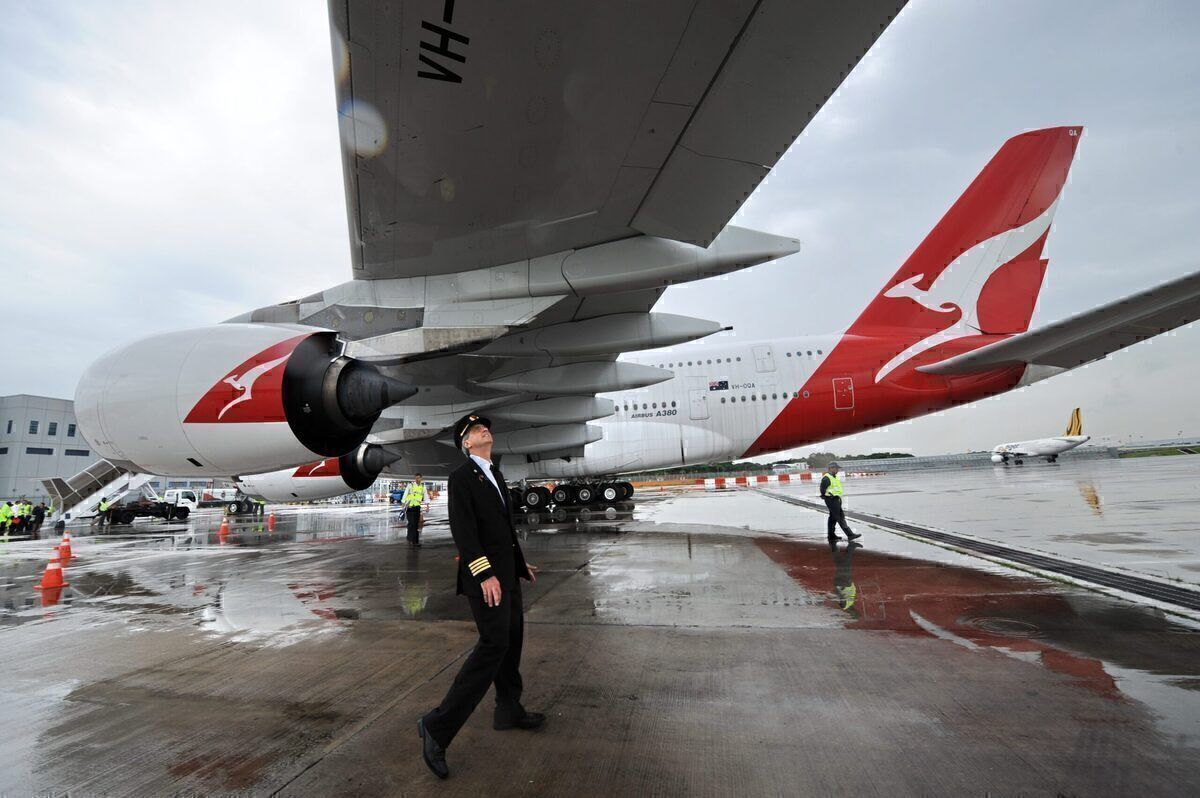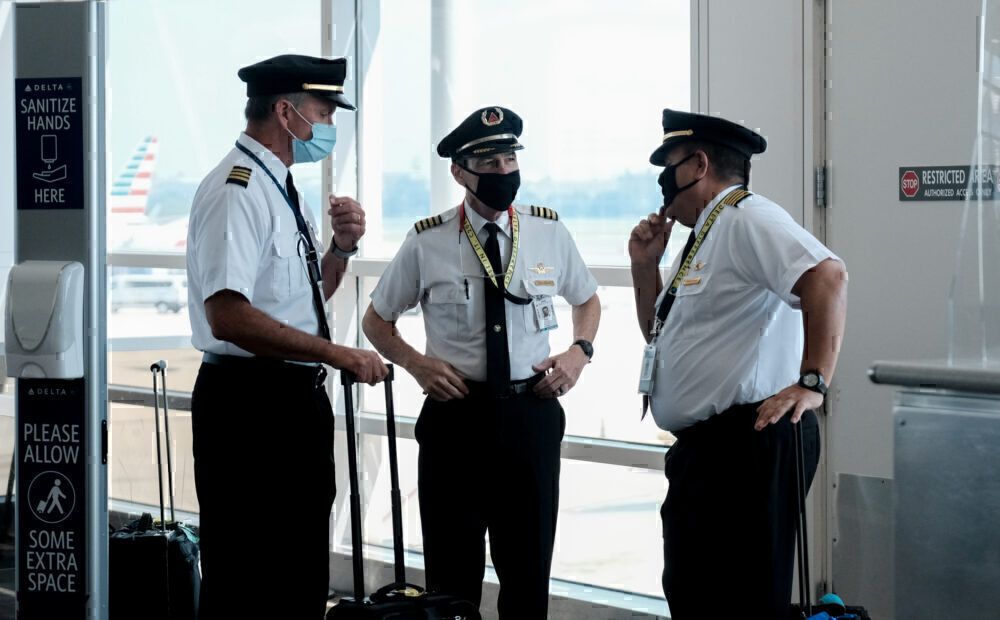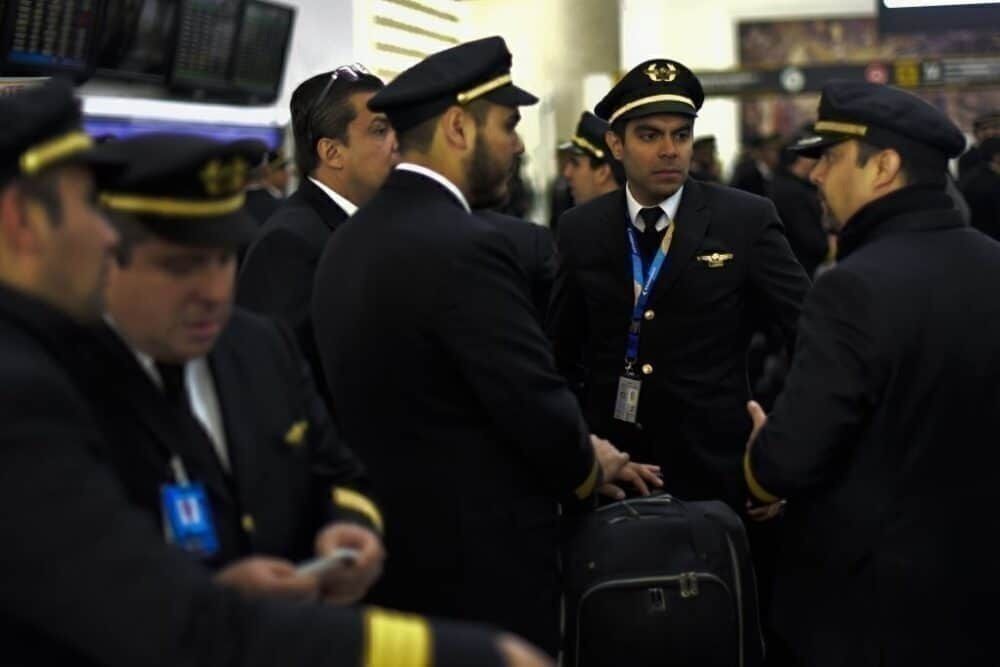The unparalleled nosedive of air travel demand caused by COVID-19 has turned the lives of thousands and thousands of airline crew upside down. In a survey published Thursday, numbers revealed that the unprecedented crisis had left more than half the world's trained pilots on the ground.
We all know that the global health crisis that began close to 12 months ago has had a devastating effect on commercial aviation. Now, data, along with a whole host of end-of-the-year results, are starting to tell the tale of just how much - and how far away the industry still has to go on the road to recovery.
Stay informed: Sign up for our daily aviation news digest.
Unemployment levels at 30%
A survey conducted in collaboration between Goose Recruitment and fellow aerospace publisher FlightGlobal has revealed figures for the current employment market for pilots worldwide. Titled the Pilot Survey 2021, it was open for responses for four weeks ending on October 30th last year.
A total of 2,598 pilots took the survey, which revealed that only 43% of them were currently employed and flying. This means that more than half of the world's pilots are no longer doing what they were trained for.
Out of those not currently employed, 30% were out of a job, 17% were furloughed, 6% otherwise employed in aviation, and 4% were employed in other industries. North American pilots had, up until then, retained jobs to a greater extent than on other continents - only 20% of pilots there reported being unemployed. It also looks as if their prospects are looking up, as Delta just announced it is bringing back 400 full-time pilot positions.
Opportunities cut short and pay cuts
When asked if unemployed as a result of the ongoing pandemic, a whooping but perhaps not entirely surprising, 84% answered yes. 66% of unemployed pilots were actively seeking new employment, but only 3% were in an interview process.
“I resigned from my previous employer in December 2019 to join a major airline in the Middle-East in March 2020. However, due to the COVID-19 crisis, my employment offer has now been withdrawn,” one unnamed pilot elaborated on their response in the survey.
However, whether or not a pilot is still flying does not tell the full story of the disastrous impact of COVID-19 on the profession. Those that are active in some cases face severe pay cuts, such as with Cathay Pacific's decision to slash salaries by up to 58%.
UK Ryanair's pilots have agreed to 20%, and Lufthansa's pilot union with up to 45% for the next two years. Of unemployed pilots taking part in the survey, 82% would accept a pay cut to secure a new position with an airline.
Younger pilots' mental health affected most
Unfortunately, it is not only the finances of pilots and their families that have suffered. 40% of pilots surveyed said that the pandemic had impacted their mental health. The younger the pilot, the more likely they were to have had their wellbeing negatively affected; 58% of those under 24 said yes, compared to 44% of those between 35 to 44, and 32% of pilots aged 55 to 64.
“I am very concerned about how I will be able to fund my family and retain my home due to the lack of alternative employment prospects. The unexpected shock of instant furlough in March, followed by a notice of redundancy and loss of income with ongoing long-term financial commitment is a constant worry,” one pilot commented.
“I was depressed as I saw my flying career disappearing and there was nothing I could do about it,” another said.
Out of those who said they were stressed, job security was the biggest cause (47%), followed by COVID-19 (25% and especially European pilots) and management (10%).
On a more positive note, about 25% of pilots said that the pandemic had made them stronger and more resilient than ever.
Are there any words of encouragement you would like to offer pilots who are going through a difficult time as a result of the crisis? Let us know in the comments.



